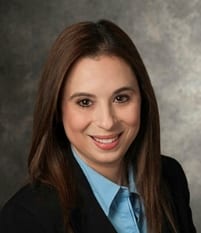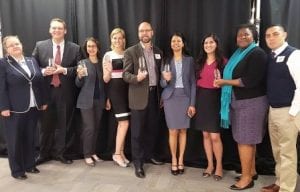Original Blog Post by SMU DRCM Prof. Angela Mitakidis
In the current election climate filled with presidential debates, related talk shows and political commentaries flooding our TV screens, what are our children picking up from our reactions, our language, our expressions?
 At the age of 4, my daughter was role playing on my cellphone, pretending to call her best friend. She proceeded to tell her: “I’m so sorry, Demi, but I’m going to have to cancel our coffee date for tomorrow… I have to take the kids to the doctor… I’ll call you to arrange another time. Ok, great, thanks for understanding. Chat soon, bye”. It was like I was hearing myself speak! (My son did the same with both me and my husband). As cute as that was, it also served to confirm the abundance of research showing that children observe parents from a very young age to the extent that they can mimic their language and behaviors with astounding precision.
At the age of 4, my daughter was role playing on my cellphone, pretending to call her best friend. She proceeded to tell her: “I’m so sorry, Demi, but I’m going to have to cancel our coffee date for tomorrow… I have to take the kids to the doctor… I’ll call you to arrange another time. Ok, great, thanks for understanding. Chat soon, bye”. It was like I was hearing myself speak! (My son did the same with both me and my husband). As cute as that was, it also served to confirm the abundance of research showing that children observe parents from a very young age to the extent that they can mimic their language and behaviors with astounding precision.
In an article published in Parents Magazine[1], it is suggested that children imitate parents from as young as toddler age as a bonding mechanism, because children draw their parents’ attention and praise when they mimic them. In order to draw more attention and praise, children will continue to imitate. Furthermore, imitation is also regarded as a “stepping-stone to independence”. As children learn to imitate, they become empowered with the discovery of newfound abilities – to mimic what they see, and garner a response. Eventually, over time and with repetition, imitations become self- motivated role modeling behaviors.
Dr. Dan Siegel, a psychiatrist, says that our experiences during infancy influence how the brain develops, how we learn to calm our emotions, and how we relate to others. He explains that the relationships we have with our caregivers at a young age directly shape who we become.”[2]
My children are now 16 and 19, and they still watch my husband and I closely. In the current election climate filled with presidential debates, related talk shows and political commentaries flooding our TV screens, what are our children picking up from our reactions, our language, our expressions? We notice that our children regularly glance at us, gauging our reactions. Research shows that role modeling continues well into adolescence, and even though teens are becoming more independent, they still require and seek out their parents, more so for role modeling and mentoring. How are we doing as mentors?
I had the privilege of working in Singapore with Dr. John Ng (author, mediator, leadership consultant)[3] and am reminded of his work on this subject. He says children do what they see, not what we say – raising great children starts with an understanding of ourselves first. He emphasizes the importance of examining our own values and managing our own ‘hot buttons’ first.[4]
Some of the values we hold dear, and wish to effectively impart to our children could be, for example, our moral compass, our sense of patriotism, equality, faith, the importance of human dignity, mutual respect, tolerance in diversity, charity and the list goes on. Are the values we are telling our children to follow congruent with the values we are displaying for them? If we are saying one thing and displaying another, are we confusing our children? A good question for a parent to ask is “how is my behavior right now reinforcing the values I’m teaching my children to imitate?”.
Continue reading “Election 2016: What does your child think?”



 EVENT INFORMATION
EVENT INFORMATION At the age of 4, my daughter was role playing on my cellphone, pretending to call her best friend. She proceeded to tell her: “I’m so sorry, Demi, but I’m going to have to cancel our coffee date for tomorrow… I have to take the kids to the doctor… I’ll call you to arrange another time. Ok, great, thanks for understanding. Chat soon, bye”. It was like I was hearing myself speak! (My son did the same with both me and my husband). As cute as that was, it also served to confirm the abundance of research showing that children observe parents from a very young age to the extent that they can mimic their language and behaviors with astounding precision.
At the age of 4, my daughter was role playing on my cellphone, pretending to call her best friend. She proceeded to tell her: “I’m so sorry, Demi, but I’m going to have to cancel our coffee date for tomorrow… I have to take the kids to the doctor… I’ll call you to arrange another time. Ok, great, thanks for understanding. Chat soon, bye”. It was like I was hearing myself speak! (My son did the same with both me and my husband). As cute as that was, it also served to confirm the abundance of research showing that children observe parents from a very young age to the extent that they can mimic their language and behaviors with astounding precision. SMU Dispute Resolution Alumna Robyn Short will debut her new book, Peace in the Workplace: Transforming Conflict Into Collaboration, at the Conflict Resolution Author Series on Oct. 11 at 6:30 p.m. at the Center for Dispute Resolution and Conflict Management at SMU-in-Plano.
SMU Dispute Resolution Alumna Robyn Short will debut her new book, Peace in the Workplace: Transforming Conflict Into Collaboration, at the Conflict Resolution Author Series on Oct. 11 at 6:30 p.m. at the Center for Dispute Resolution and Conflict Management at SMU-in-Plano. The Southern California Mediation Association (SCMA) has chosen Dr. Betty Gilmore as the 2016 L. Randolph Lowry Award recipient. The award honors members of the dispute resolution community who have inspired others through their passion and dedication to education in the field of dispute resolution.
The Southern California Mediation Association (SCMA) has chosen Dr. Betty Gilmore as the 2016 L. Randolph Lowry Award recipient. The award honors members of the dispute resolution community who have inspired others through their passion and dedication to education in the field of dispute resolution. SMU Dispute Resolution students won every award category during the 5th Annual Graduate Program Mediation Competition hosted by SMU’s Center for Dispute Resolution and Conflict Management, April 1-2, in Plano.
SMU Dispute Resolution students won every award category during the 5th Annual Graduate Program Mediation Competition hosted by SMU’s Center for Dispute Resolution and Conflict Management, April 1-2, in Plano.